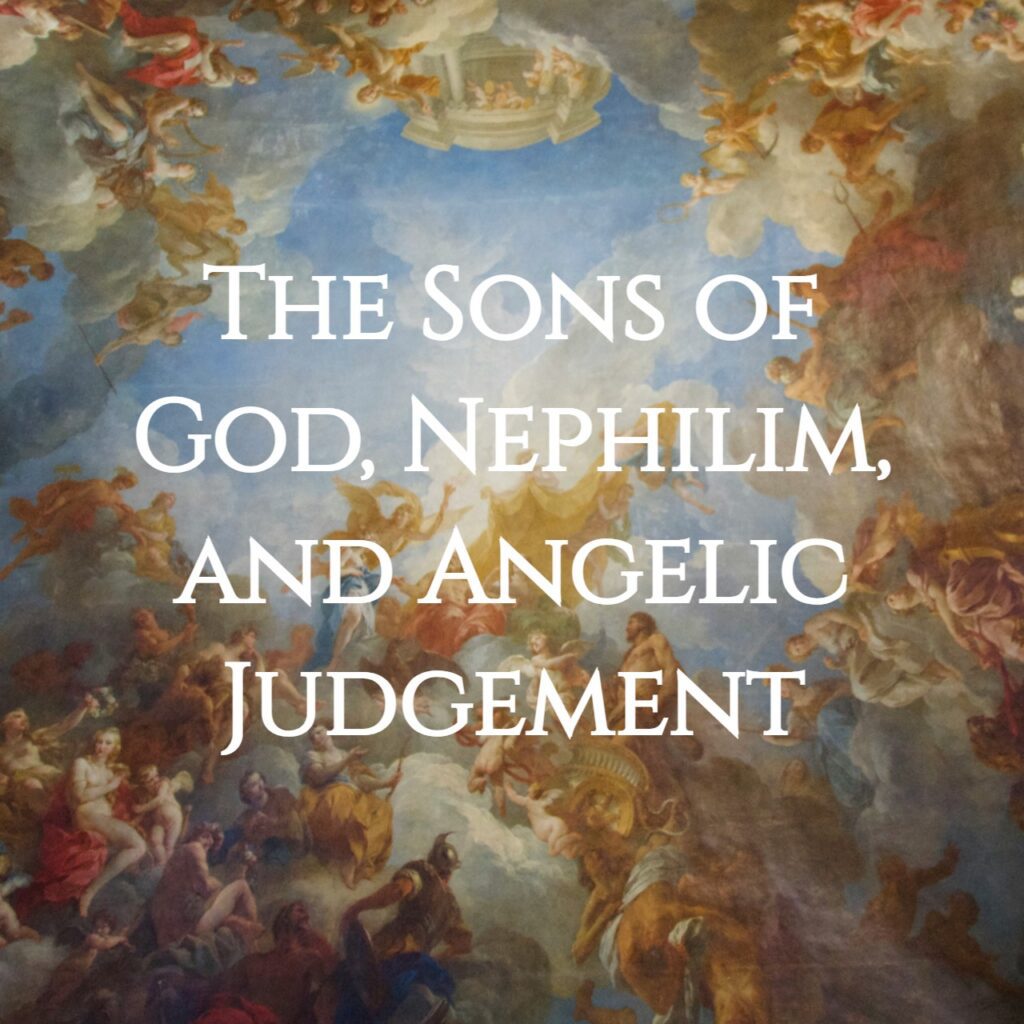
When man began to multiply on the face of the land and daughters were born to them, the sons of God saw that the daughters of man were attractive. And they took as their wives any they chose. Then the Lord said, “My Spirit shall not abide in man forever, for he is flesh: his days shall be 120 years.” The Nephilim (or giants) were on the earth in those days, and also afterward, when the sons of God came in to the daughters of man and they bore children to them. These were the mighty men who were of old, the men of renown. – Genesis 6:1-4 ESV
The passage in Genesis 6:1-4, recounting the “sons of God” taking wives from the “daughters of men” and begetting the Nephilim (“giants”), continues to generate scholarly debate and theological reflection. The Hebrew bene Elohim (“sons of God”) is often interpreted as referring to angels. This interpretation gains support from Jude 1:6 and 2 Peter 2:4, where angels receive punishment for transgressions.
- And the angels who did not stay within their own position of authority, but left their proper dwelling, he has kept in eternal chains under gloomy darkness until the judgment of the great day— Jude 1:6 ESV
- For if God did not spare angels when they sinned, but cast them into hell and committed them to chains of gloomy darkness to be kept until the judgment; – 2 Peter 2:4 ESV
Some others have interpreted “sons of God” as the rulers of that era.
The Challenge of Angelic Procreation
If Jude and Peter reference Genesis 6 as the sin of the angels, a core difficulty arises concerning the ability of angels to produce hybrid offspring. Matthew 22:29-30, where Jesus declares that angels neither marry nor are given in marriage, emphasizes their non-procreative nature. This casts doubt on the literal angelic-human breeding scenario.
But Jesus answered them, “You are wrong, because you know neither the Scriptures nor the power of God. For in the resurrection they neither marry nor are given in marriage, but are like angels in heaven. – Matthew 22:29-30 ESV
Angelic Possession and Rebellion
Instead of direct procreation, it might be possible that the angels took human form, or possessed human bodies like demons do. Jude and Peter may highlight a unique sin: angels abandoning their ministerial role to human and engaging in illicit unions, a direct act of rebellion against the Creator.
The Spirits in Prison
The “spirits in prison” to whom Jesus proclaims victory (1 Peter 3:18-20) may well be these fallen angels. Their disobedience pre-flood echoes the event of Genesis 6:1-4, establishing a link between the texts.
For Christ also suffered once for sins, the righteous for the unrighteous, that he might bring us to God, being put to death in the flesh but made alive in the spirit, in which he went and proclaimed to the spirits in prison, because they formerly did not obey, when God’s patience waited in the days of Noah, while the ark was being prepared, in which a few, that is, eight persons, were brought safely through water. – 1 Peter 3:18-20 ESV
Conclusion and Implications
The precise nature of their sin remains subject to interpretation—perhaps literal procreation or possession and illicit unions. However, the intertwined passages of Genesis, Matthew, Jude, and Peter reveal God’s unwavering justice. Even angels are held accountable for rebellion. Therefore, we should not think that we can escape the consequences of our sins.
Angga
Photo by Simon Champagne on Unsplash
